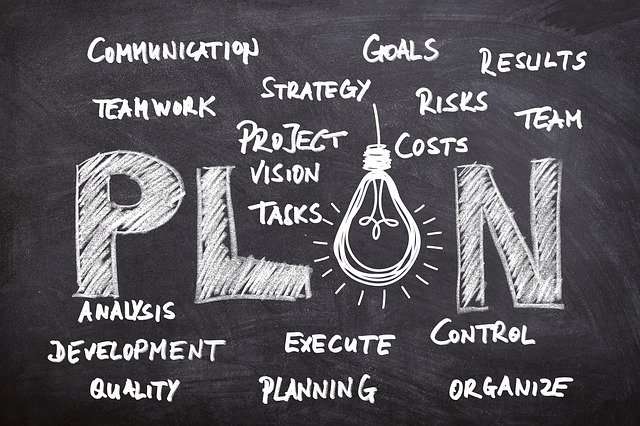
by Suellen | Meeting the Challenges, Success, Vision and Goals
Okay. Okay. I know that you have lots of work to do sitting in that chair. Yet all of the experts tell us to get up and get moving.
Of all the things you can do to boost your mindset, exercise is near the top of the list. It not only improves your mindset but does so with relatively little mental “work” compared to most of the other methods you can employ.
So what are the top 5 benefits of exercise?
1.) Exercise Makes You Feel Good
Exercising causes your body to release feel-good hormones. Norepinephrine, Serotonin, and Dopamine are released in your brain to lift your mood, make you feel better physically, and make you more optimistic.
These hormones are noted for reducing depression, improving self-esteem, and increasing your confidence.
2.) Exercise Clears Your Mind
One of the greatest benefits of exercise is that it helps you clear your mind of distractions. It gives you something to think about other than your problems and your to-do list.
This “blank slate” effect both boosts your mood and temporarily improves your mindset.
3.) Exercise Reduces Stress Levels
Are you feeling stressed?
Go out and exercise. Working out physically burns stress chemicals out of your body, making you feel better and improving your mood and mindset.
Surprisingly, it doesn’t take a lot of exercise for the good effect. A brisk ten-minute walk is enough to do it.
4.) Exercise Improves Your Ability to Concentrate
The benefits of working out also extend to what you do afterward. Getting in a good workout improves your ability to concentrate on other tasks for several hours after you finish.
This makes you more productive and puts you in a better mood.
5.) Exercise Results in Better Sleep
All of the other benefits of exercise combine to create one more: better sleep.
Exercising results in improved sleep, both in quality and quantity. Getting enough good-quality sleep is one of the most important parts of improving your mindset.
Good sleep makes everything seem better and lack of it makes everyone grumpy.
Exercise has many important benefits other than its effects on mindset and personal development, of course.
It improves your health and longevity, just for starters.
But its effects on your mind shouldn’t be understated.
So start an exercise program. You decide what will work for you.
It’s not necessary to hire a personal trainer or join a gym to get these benefits. Start by walking a few days a week. Ten minutes is enough to start. Gradually increase your walks to 20 or 30 minutes and you’ll feel better in every possible way.
Get up and get moving in the way that works for you!
For more about Secrets of Happiness, check out this Done-For-You Content for you and your clients.

by Suellen | Meeting the Challenges, Vision and Goals
You may have heard so many people talk about goals that you are tired of hearing about the subject.
I’ve been there.
You may be like me – and have a very busy life. When our lives contain many demands, we can be run by what’s known as the “tyranny of the urgent.” All of these things that you “have to do,” demand all of your time.
At the end of the day, you are tired and worn out. You just want to relax a little.
Yet there’s another saying. “If you don’t know where you are going, you might wind up some place else.” In other words, You and I need to have goals. Targets to reach for. Points of focus for our energy
So what are your goals? Do you have any? Or is that part of the problem?
Goals are important at every age; they give you something to focus on, challenge you, and give you a feeling of accomplishment when you succeed at reaching them. Improving your mindset will help you reach your goals, but first, you have to know what they are.
Take out your journal or a sheet of paper and a pen and write down your top five goals for your life. Big or small, it doesn’t matter. Write down the goals that YOU want to reach, not that society expects you to want. Pray about it. These are very personal.
When you’ve finished, look at the list and prioritize it. Take your top goal -the most important one you want to accomplish -and make a plan to reach it. It doesn’t matter if this goal is big or small, whether it’s something as big as starting a business or as small as putting together a 1,000-piece puzzle. Make your plan and incorporate it into your mindset and self-improvement program. This is now what you’re striving for.
But what if your page is blank? What if you don’t know what your goals are, or you don’t have any? Well, your task now is to come up with some. Again, these have to be goals that are unique to you, not to the broader society. If you don’t want to ever own a house, don’t make that a goal.
Take out another sheet of paper. Close your eyes. Now imagine that time and money weren’t an issue. What would you do? You can do anything, anything in the world. Write down the first five things that come to mind. Next, write down five things that you enjoy doing and would like to do more of if you could find the time.
Compare the two lists. You’re probably going to find a significant amount of overlap. These are the things you really want. This is where your heart lies. Psalm 139 talks about your “unformed substance” which God put there. Many times your desires arise from that part of you . Your innermost being. Listen to that still small voice within you.
Select a few of these things -three is enough to start with -and turn them into a concrete goal. “Travel more” could become “Take a cross-country trip in an RV next summer,” for example.
If your goal is to write a book, start smaller. Plan to write posts online. Start a blog, or write on Medium.
Think how you can start working toward those goals.There are no beginnings that are too small. Every step will bring you closer.
Having goals is an important part of your plan to improve your mindset. You need the challenge and the effort to catalyze your mindset shift and personal growth. You also need them to live your best life. Working on your goals is a win-win!
Check out this Done for You Pack Set Your Goals. You can share these posts, graphics, and more with your clients.

by Suellen | Meeting the Challenges, Online Success, Vision and Goals
Failure!! Ugh!! No one likes it!
Everyone wants to succeed, preferably on the first try. Unfortunately, that’s not realistic. You’re going to fail on your journey to improve your mindset and change your life. You’re probably going to fail many times.
If you are reaching out for growth, you will fail sometimes. Remember the stories. Babe Ruth for many years held the record for most Home Runs in Baseball. (He also held the record for most Strike Outs). Thomas Edison is well known for inventing the light bulb. (What isn’t as well known is that he finally succeeded after 10,000 attempts).
So failure is a stepping stone on the way to success! Think of it that way.
So how should you handle failure constructively without getting frustrated? These tips should help you.
1.) Figure out why you failed. Look at your failure analytically. What caused it? What did you do wrong? Is there something you could do differently next time? Or was the failure outside of your control?
2.) Change things before you try again. Did you approach the problem wrong? Change how you do it next time. Were the conditions wrong, the timing? Were you adequately prepared? These are all things you can remedy before your next attempt.
3.) Ask for help. Don’t be a lone wolf! Life is hard, and challenges often require the input of more than one person. Find someone with more knowledge and experience than you and ask them to mentor you or help you solve the problem. You can find someone to help you with any problem, big or small, from an academic issue to work problems to dating. You just have to ask!
4.) Look at and appreciate the progress you’ve made. Sure, you might have failed, but did you learn something? Are you further along than you were before? Of course. Look at how far you’ve come since you started on this journey. Appreciate it and congratulate yourself before tackling your failure again.
5.) Consider adjusting your expectations. In other words, did you try to go too far too fast? You’re not going to create a masterpiece (or become CEO) overnight. Did you try to improve too much at once? Look at your expectations and adjust them before trying again. Remember the one-percent rule -improving by one percent each attempt will get you to your goal faster than trying (and failing) to make big leaps.
Above all, don’t give up! You can reach any goal you set your mind to. You just need to find the right way. It took Thomas Edison over 10,000 tries to invent the light bulb. He used to say that he hadn’t failed; he’d just found 10,000 ways that wouldn’t work!
You can put this knowledge to work for yourself. Follow the tips above to evaluate your failure, adjust what you’re doing, and try again. You can do it.
For more hints on Goal Setting for you and your clients, go HERE.

by Suellen | Meeting the Challenges, Vision and Goals
O.K. We don’t like to hear this, but it’s true! Growth happens outside of our comfort zone.
If you want to experience personal growth, any growth, but particularly massive growth, you’re going to have to get out of your comfort zone. You can’t grow while you stay within your comfort zone.
Hint: They call it “comfort zone” for a reason! Makes you think of a big pillow, a warm blanket, and a mug of hot chocolate.
When you’re in your comfort zone, you’re comfortable. You may not be happy, but you’re not going to be totally miserable. And you’re static. There is nothing to challenge you or push you. Things are rolling along as normal, and you’re caught in the normal day-to-day flow of life.
This is a fine state of affairs if you’re happy with life, but what if you’re not? What if you want to grow and change and find a better way to live?
In the latter case, staying in your comfort zone means stagnation. It means life passing you by until one day you wake up to find yourself too old to live the life of your dreams and you wonder what happened. If you don’t want this to be you, you need to step outside your comfort zone.
Discomfort isn’t pleasant, but it’s where growth happens. Your brain and body have to respond to challenges (discomfort) and this catalyzes new growth and development. You can cause personal development and deliberately change your mindset by challenging yourself. The bigger the challenge, the bigger the response, and the more personal growth that happens.
That doesn’t mean you should schedule skydiving lessons for next weekend, however! Going too big too fast can also backfire on you. This is particularly the case if you’ve stayed in your comfort zone for a long time. Start small. Take a new route to or from work every day for a week. Try a new restaurant. Shop in an unfamiliar store.
Next, make a list of experiences you would like to have and things you would like to do. Start marking them off. Plan these things, commit time and money to them, and even tell other people you’re going to do them so you’re less likely to back out. Start planning for the biggest thing on your list.
Mark had always dreamed of rafting through the Grand Canyon. So one day, he decided to stop just dreaming, and start doing.
First, he planned the trip. He booked it for a couple of years away. So it was on his calendar and his deposit was paid, He was cammitted. In 24 months, he was going to be floating down the Colorado River.
That was a big, scary challenge. Certainly those “what have I done?!!” voices started. Yet he was committed.
What next? Mark scheduled rafting lessons. He went on local day trips. Then short camping trips. When the time came, he was ready.
You can do this no matter what the goal. Think about some big dreams you have for your internet or writing business. Then commit to them – maybe by telling others. Then plan for a year or two ahead. And begin the preparations you need to do to make this happen.
Step outside your comfort zone, challenge yourself, and change your life!

by Suellen | Meeting the Challenges, Vision and Goals
Some people think that our mindsets were set at birth and they can’t be changed. But that is a myth! Not only is this a myth, but it can be dangerous, as it belies the potential for human change and personal development.
Another myth is that a growth mindset is good and a fixed mindset is bad.
In this blog post we want to expose those myths. Your mindset is definitely changeable! And having either mindset can be good.
Not only is your mindset changeable, but it changes throughout your life, sometimes rapidly, and sometimes slowly. You might not have noticed you attitudes changing, but over time we change. We might not pick up on our own inner changes.
Everyone’s mindset is a combination of fixed and growth mindsets, and it’s the ratio of these two that changes throughout life. You can become more or less open to risk and more or less believing in the power of hard work and dedication to reach goals. You can also become more or less convinced that intelligence or morality are inborn versus developed attributes.
These are just examples, but every aspect of your mindset is equally open to change.
What drives these changes? The experiences you have in life are the primary reason, and how your mindset shifts is due to your personality. The same experience will have different effects on different people.
Most people shift more toward a growth mindset as they go through life, but there are exceptions. Trauma and other negative events can push people toward having more of a fixed mindset.
All of this is assuming that all the changes your mindset undergoes are unguided and happen naturally.
You can also deliberately and consciously change your mindset. You can focus on the parts of your mindset that you don’t like and change them.
Helping you do that is the purpose of this program.
Deliberately changing your core attitudes isn’t always easy, but it can be done.
During this challenge, pick one aspect of your mindset you would like to work on. Perhaps it’s embracing new things or working through frustration.
Then you can work on that one thing. There are some aids we’ll share which can help your development.
Commit your woks to the Lord and your plans will be established. (Proverbs 16:3)
Affirmations (some call it confessions), journaling, and meditation (especially on God’s Word) help you succeed in this. There are many verses in Proverbs which address habits and personality traits. These are terrific for meditation and affirmation.
When you’re satisfied with your progress in one area, you move on to the next.
Don’t buy into the myth that mindset is static. Not only can it change, but it does change throughout your life, whether or not you purposefully try to change it. Why not guide these changes and help them along so that you can grow into the best possible version of yourself.
Today, think about one aspect of your mentality you want to change. That’s what you should work on first.
















